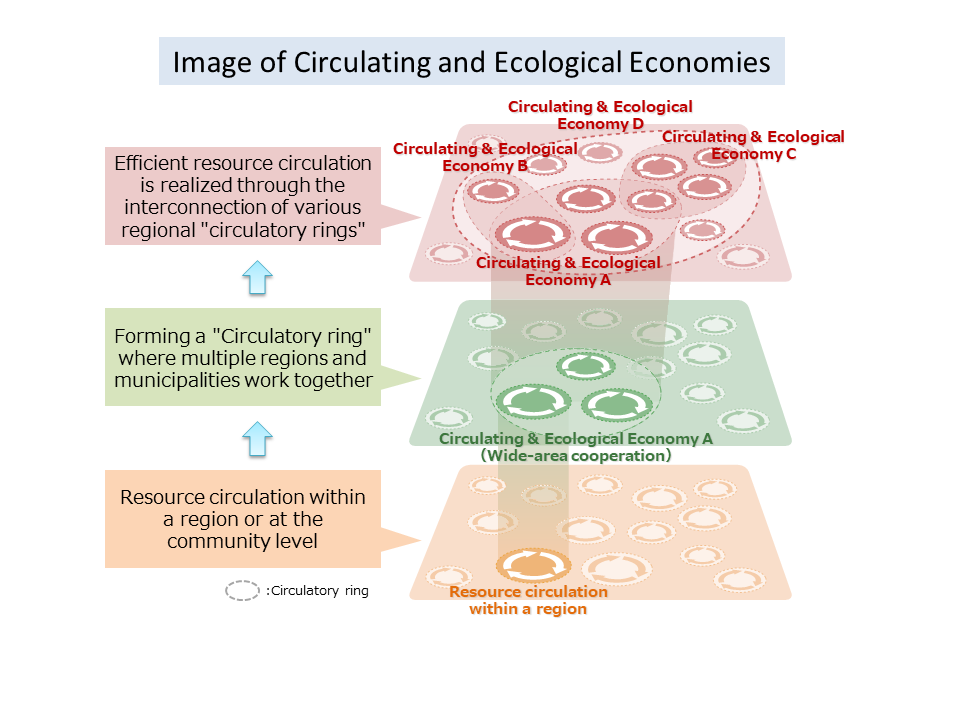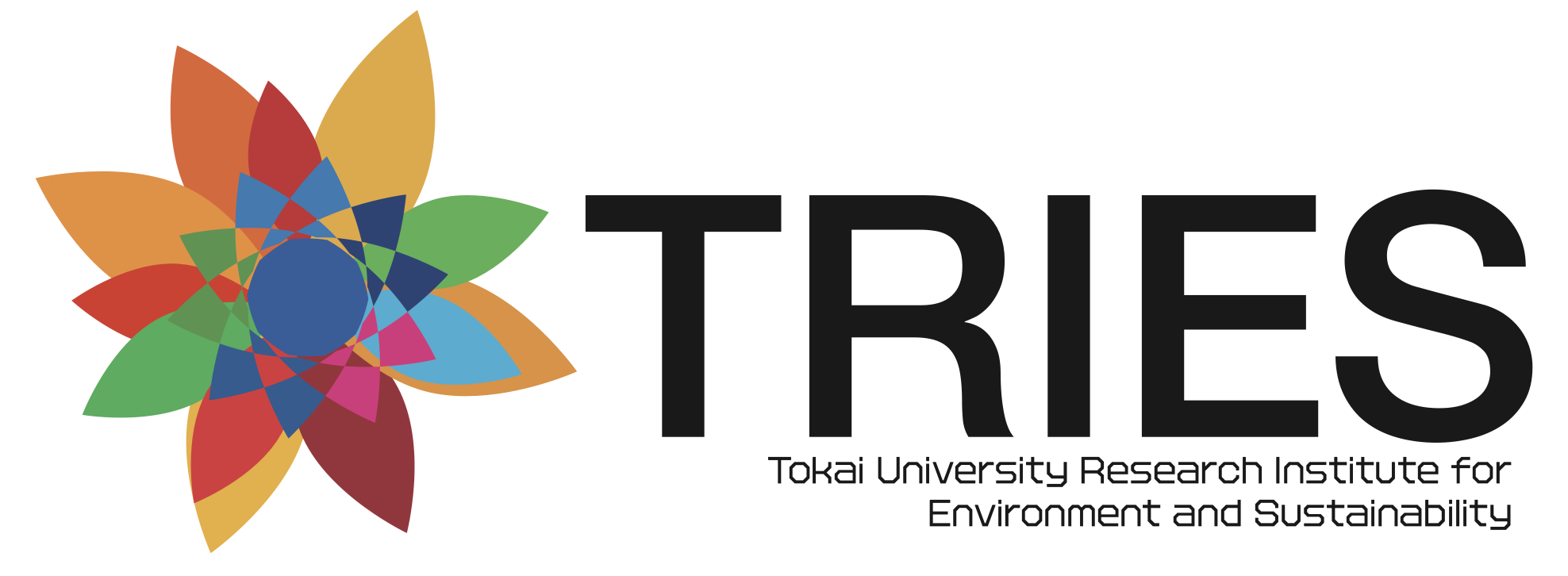Coping with the "Unexpected" and the concept of "Circulating and Ecological Economy”
05/012023
Author: Hideka Morimoto
"Unexpected" risk
Although the Covid-19 crisis is on the verge of abating, vigilance is still needed, and it cannot be ruled out that a similar situation will occur again. The post-Covid-19 world is not the society before the Covid-19.
There are countless risks that can paralyze social and economic activities. These include floods and giant typhoons caused by climate change; earthquakes, tsunamis, and volcanic eruptions; crop damage caused by pests and diseases; mass evacuations and transportation disruptions caused by radioactive contamination; cyber attacks that disrupt urban functions; and wars. Not all of these risks can be anticipated and prepared for. There may also be unknown risks. The scope of the impact also exceeded expectations. The impact of the recent Covid-19 disaster was also very broad, ranging from "weakness in the medical system" to "disruption of the supply chain and stagnation of the manufacturing industry.
How can we prepare for the "unexpected"-circumstances that are difficult to anticipate and prepare for in advance, or circumstances that we never anticipated in the first place?
Weaknesses brought about by urbanization, intensification, and homogenization
In the recent Covid-19 disaster, urbanization and intensification were considered one of the factors that increased the risk. The homogenization of society through globalization and uniform mass production also increased the problem.
On the other hand, although the Covid 19 disaster caused significant disruptions in the flow of people, no disruptions in logistics, especially in food and energy, which are essential for survival, became apparent. Although there were disruptions and breaks in the supply chain, we were able to cope with the new situation as far as food and energy were concerned. The real risk is the disruption and depletion of basic elements of life such as food and energy. This is the reason why the risk of the Covid-19 did not evolve into riots and panic.
Hints for facing the "unexpected"
Many people have felt isolated from society due to the recent Covid-19 disaster. Some have suffered psychological damage. At the same time, various forms of communities have become active in the local area or in virtual spaces, and new connections have been established. As work sharing and remote work became widespread, new opportunities emerged for housewives to play an active role in their lives. New distribution channels have emerged, such as trading surplus foodstuffs over the Internet.
Various networks and communities that had previously been diminished as a result of strong dependence on the workplace have been revitalized. These lifestyle changes provide clues to how to respond to the "unexpected.”
Key words - "diversity" and "autonomy"
Biodiversity is a mechanism that stakes the survival of life. It is coping with unknown risks as a totality through diversity. If we use the analogy of biodiversity, the keywords for coping with the "unexpected" are "diversity" and "autonomy" of society and community.
In order to respond flexibly to various unexpected risks, not limited to epidemics, it is effective for communities with diverse characteristics to coexist autonomously, thereby increasing the probability of survival. For example, in terms of the basic elements of life, such as food and energy, it may be necessary to have a multilayered autonomy, whereby local people can purchase locally what they need, their own people can purchase what they need in their own country, and if there is not enough, they can obtain it from other countries.
| Assuming the "unexpected" |
|---|
| Floods and giant typhoons due to climate change |
| Huge earthquake, tsunami |
| Giant volcanic eruption |
| Outbreak of an unknown epidemic |
| Crops wiped out by disease and pests |
| Mass evacuation and transportation disruption due to radioactive contamination |
| Urban dysfunction due to cyber attacks |
| Food and energy disruptions due to trade disputes |
| War |
| Birth of a strong terrorist |
| State emigration |
| Alien attack |
Development of infrastructure to support the new society
Various infrastructures are needed to build such an ecosystem in which diverse communities operate autonomously and collaborate locally and globally at the same time. The existing infrastructure, from roads and telecommunications to community facilities such as community centers, schools, and daycare centers, need to be reworked to make them more effective, and apps need to be prepared to support virtual interactions.
In particular, when we focus on the vital basis of life: “life-saving sectors” as Dr. Attali calls them – food, energy, medical care, education, etc. –, farmland, renewable energy facilities, hospitals, etc., need to be strongly recognized again as social infrastructure. I think we need to recognize farmland, renewable energy facilities, and hospitals as social infrastructures again. The bottom-up and flat spread of communities, each with its own uniqueness based on local characteristics, will create a resilient society that can cope with "unexpected" risks.
Such efforts are an opportunity to realize "Society 5.0," which will simultaneously accelerate the shift to IoT and reduce environmental impact, and above all, will lead to the "Circulating and Ecological Economy" proposed in Japan's Fifth Basic Environment Plan.

"Abundance" to be realized in the new society
We now know that "emergencies" are not far away. It was recognized as a risk that is right around the corner. This will change the standard of value of "abundance.” No matter how valuable something is, it is meaningless if it is not useful in an emergency. The sense of security in one's hands in times of emergency will become an important element.
Also, without bringing up the SDGs, an affluent life standing at the expense of others (others in the world, future generations) is a sham. If we do not know, we still do not know, but in the instantaneous and globalized world of information, not knowing is not an option. Now that we know, we have no choice but to seek affluence with consideration for others.
The content of consumption will also change. Professor Kazuto Ataka of Keio University says, "Brands will not be able to survive unless they are able to demonstrate that they enrich a person's life itself.” In this information age, just as the concept of "quality of life" is changing, the criteria for evaluating the "value of things" must also change.
